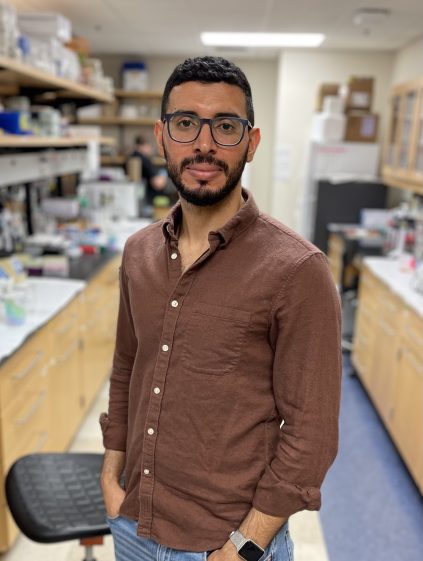Ahmed Almaghasilah
Education
- University of Maine, 2016, B.S in Electrical Engineering with math minor
- University of Maine, 2018, M.S in Electrical Engineering with a focus on Wireless and Communication
Brief Biography
I am in my fifth year in the Graduate School of Biomedical Science and Engineering program. I was born and raised in Saudi Arabia and came to United States in 2013 to pursue my undergrad studies. Prior to joining the GSBSE program, I was developing gradient tracking mathematical models for G-Protein Coupled Receptor (GPCR) signaling pathways in Saccharomyces cerevisiae at Dr. Joshua Kelley’s lab at the University of Maine.
My current research focuses on understanding the relation between Duchenne Muscular Disease and the heterochromatin and its effects on nuclei structure. He also study the impact of the NAD on the muscle regeneration using time lapse confocal imaging. For quantifying confocal and birefringence images, I use convolutional neural network (CNN) designed for semantic image segmentation to classify each individual pixels to provide an accurate results.

